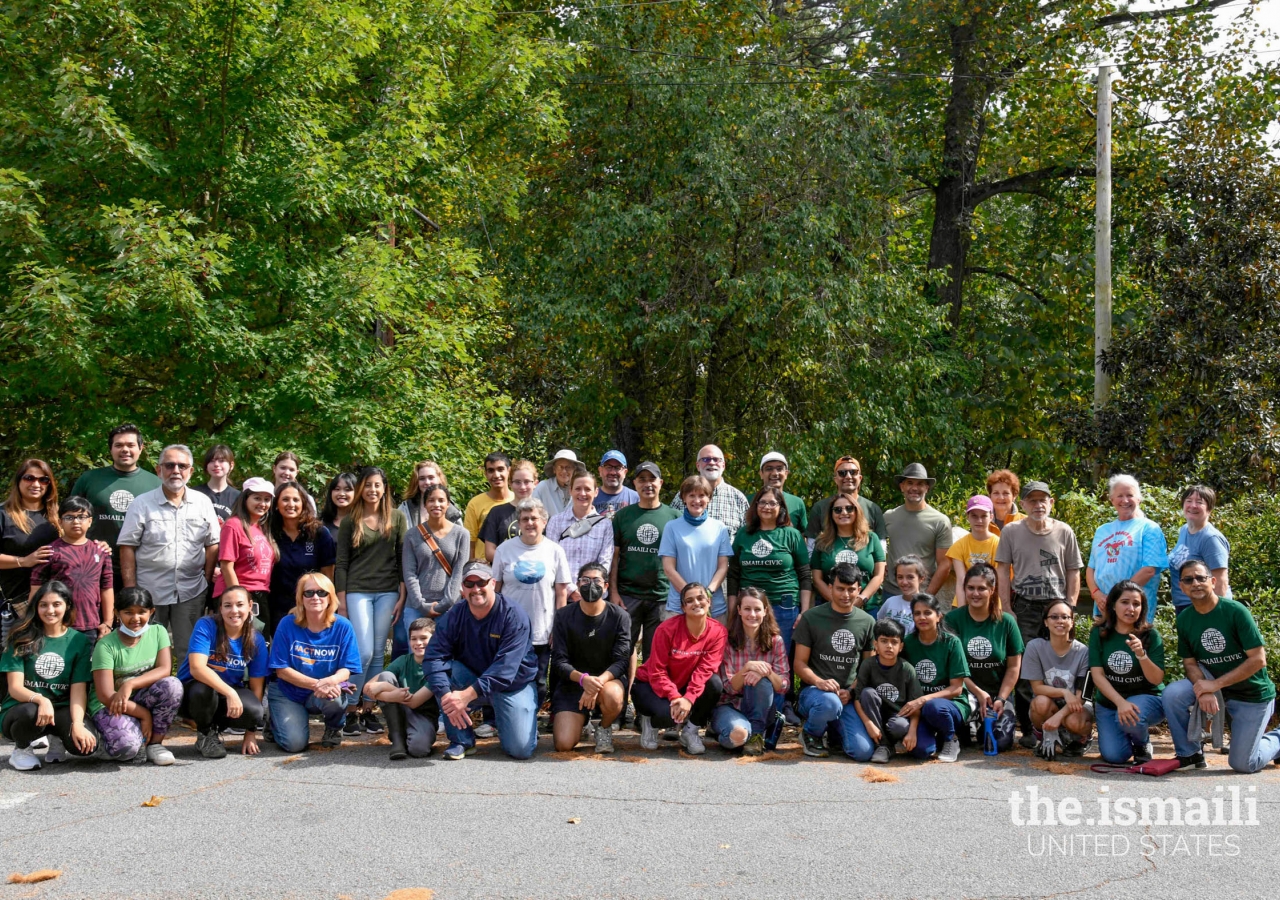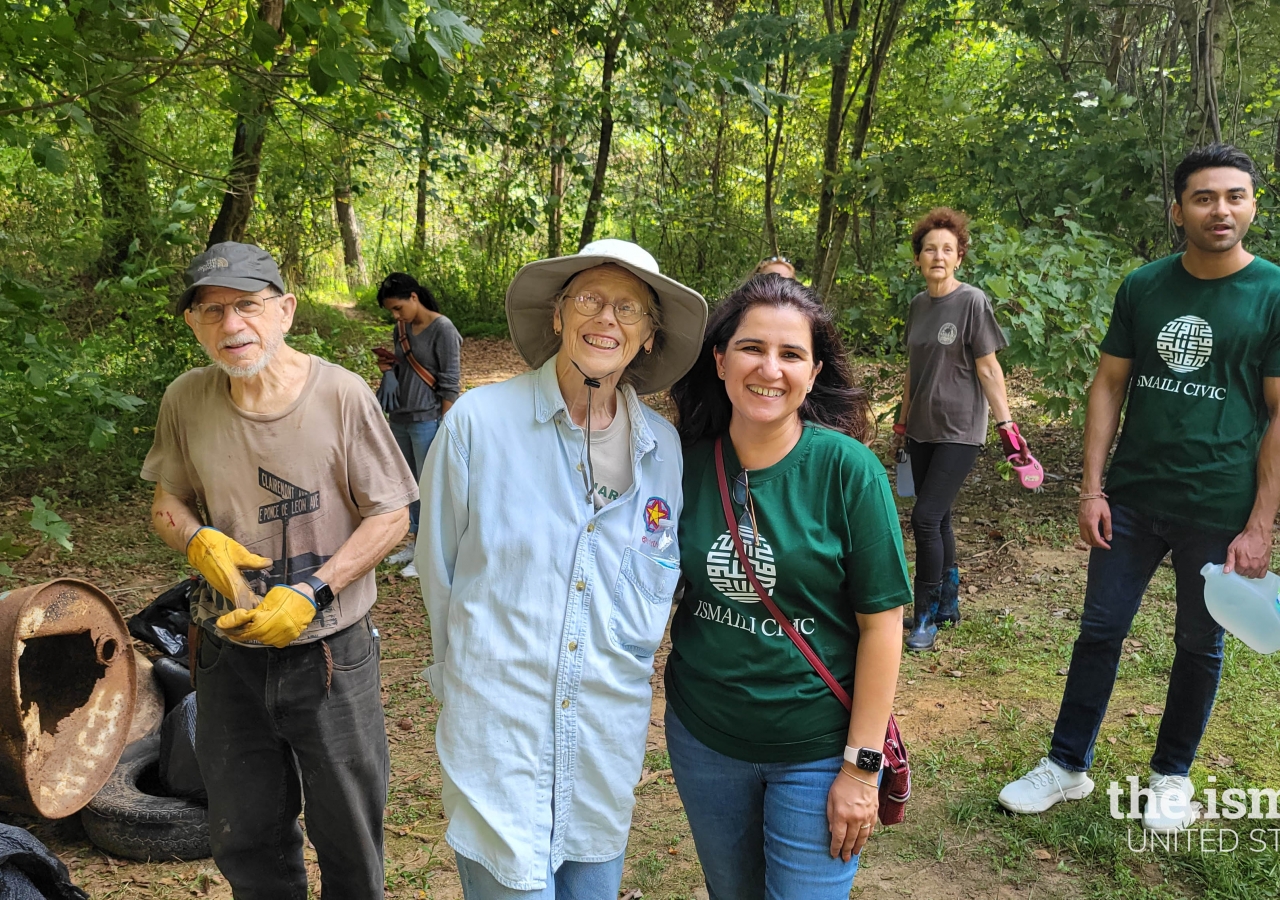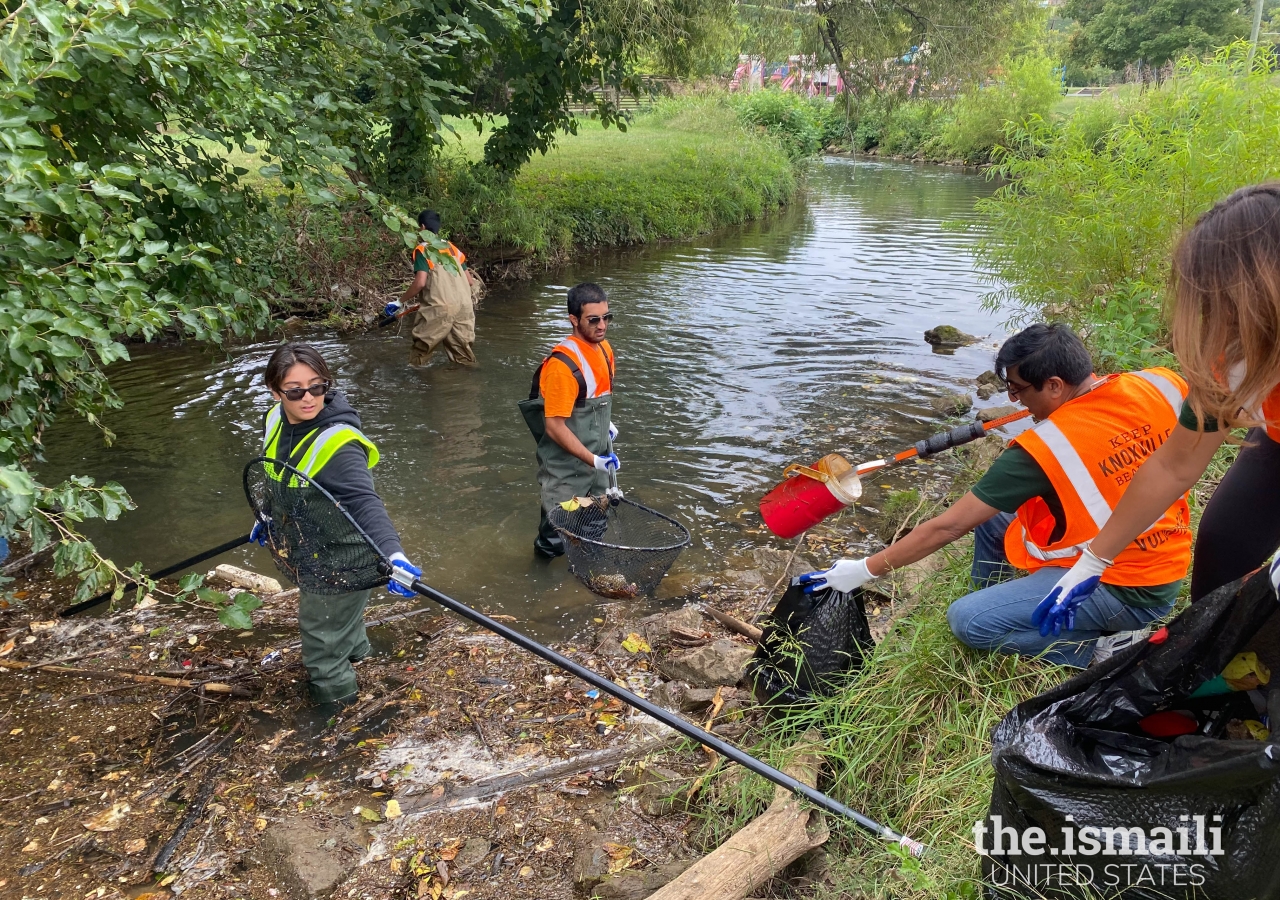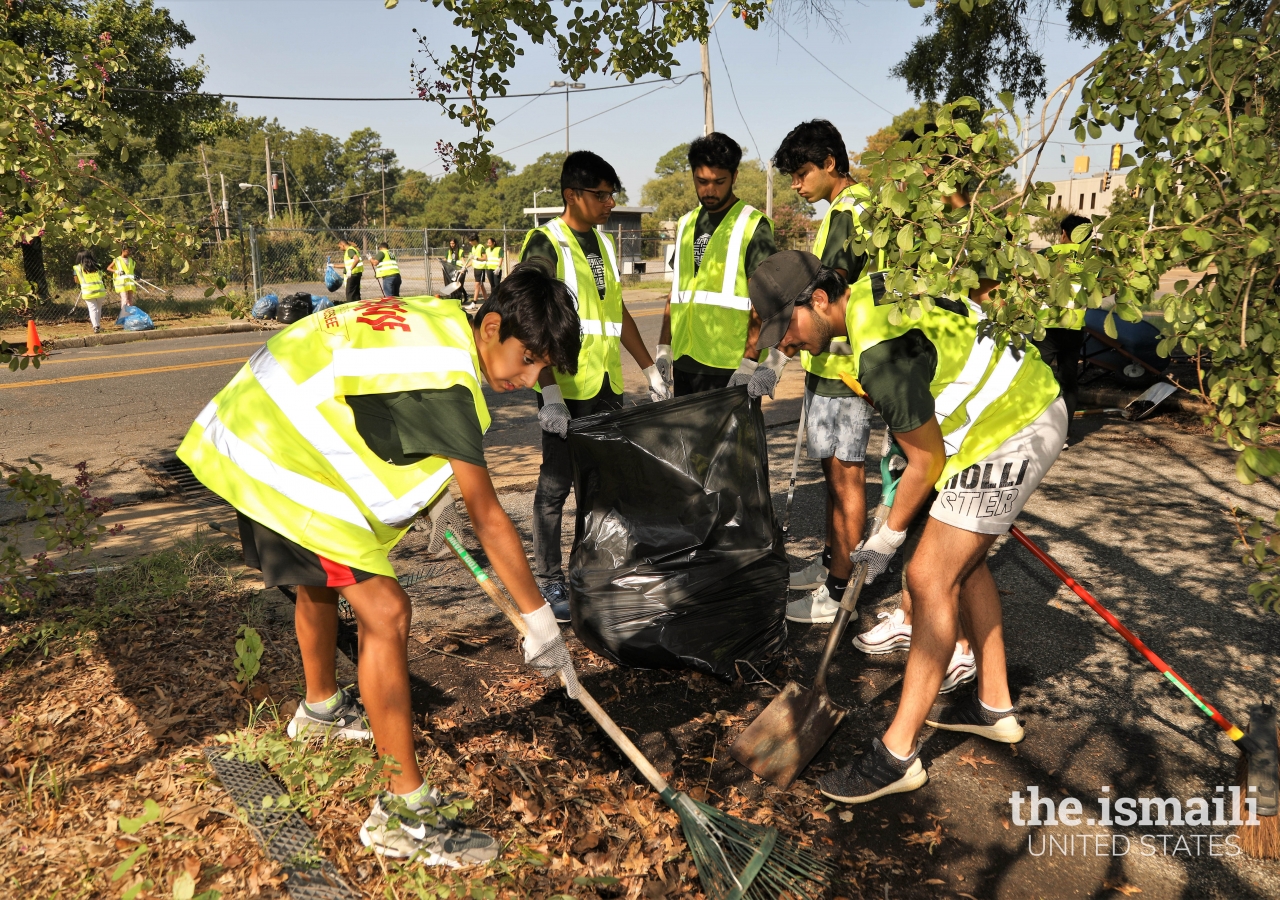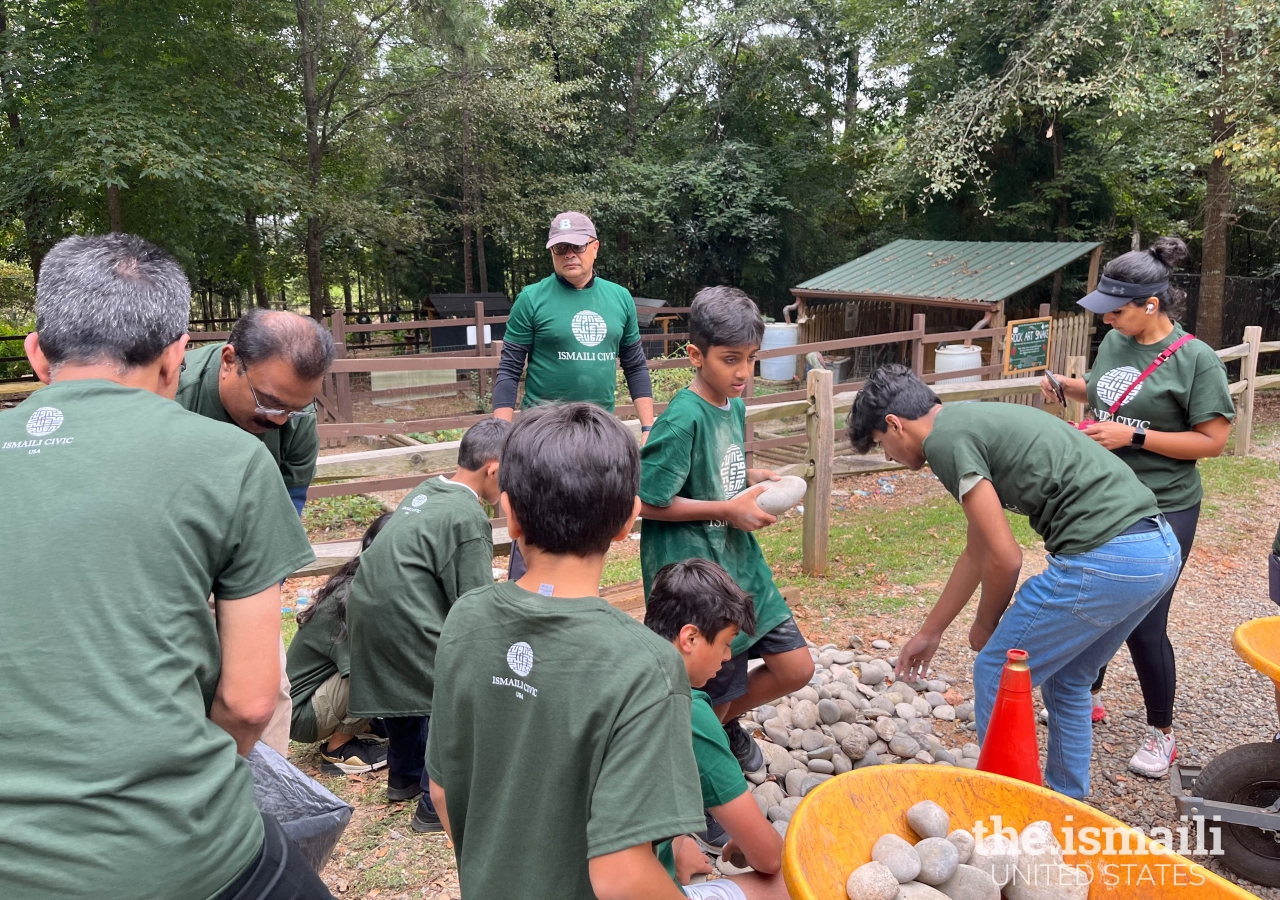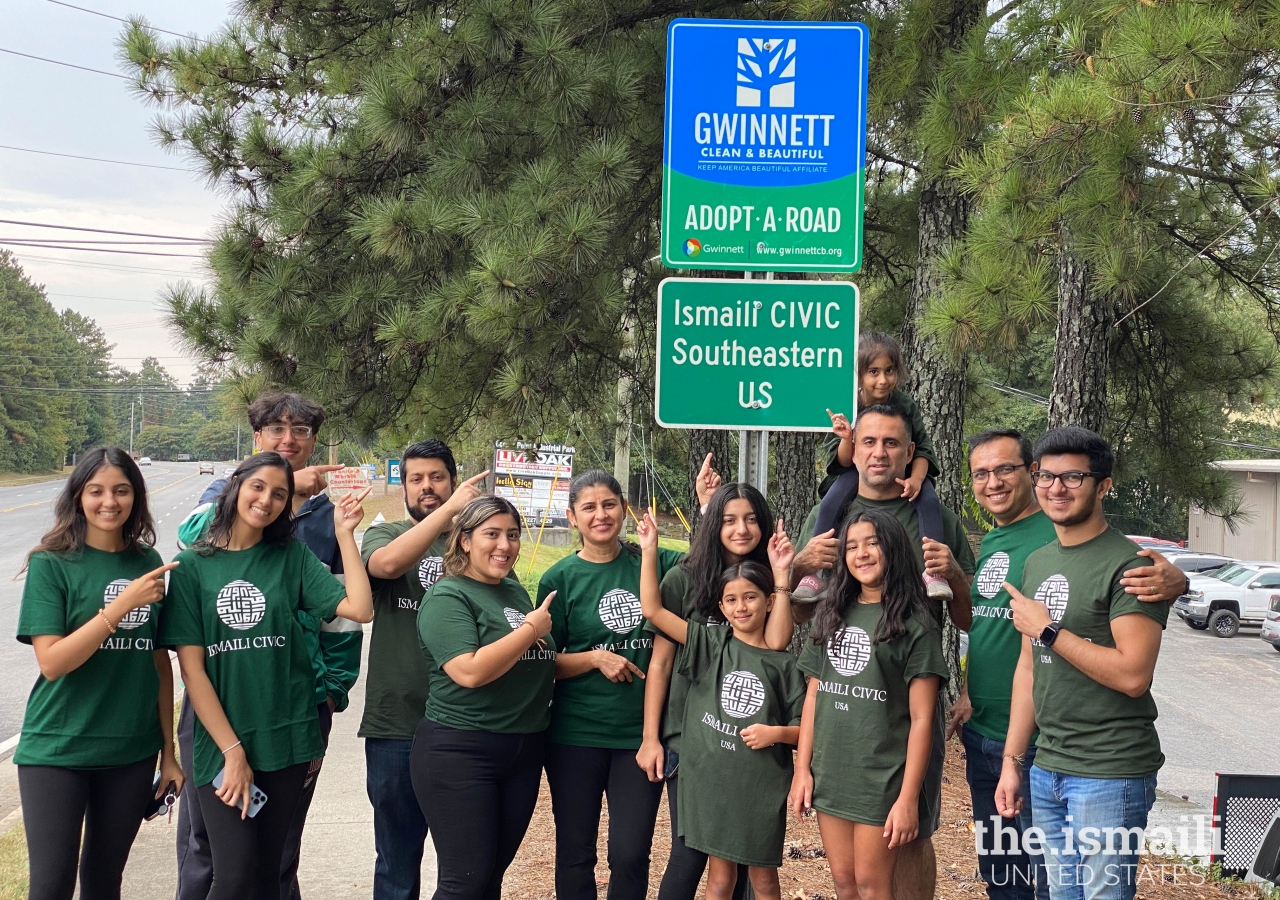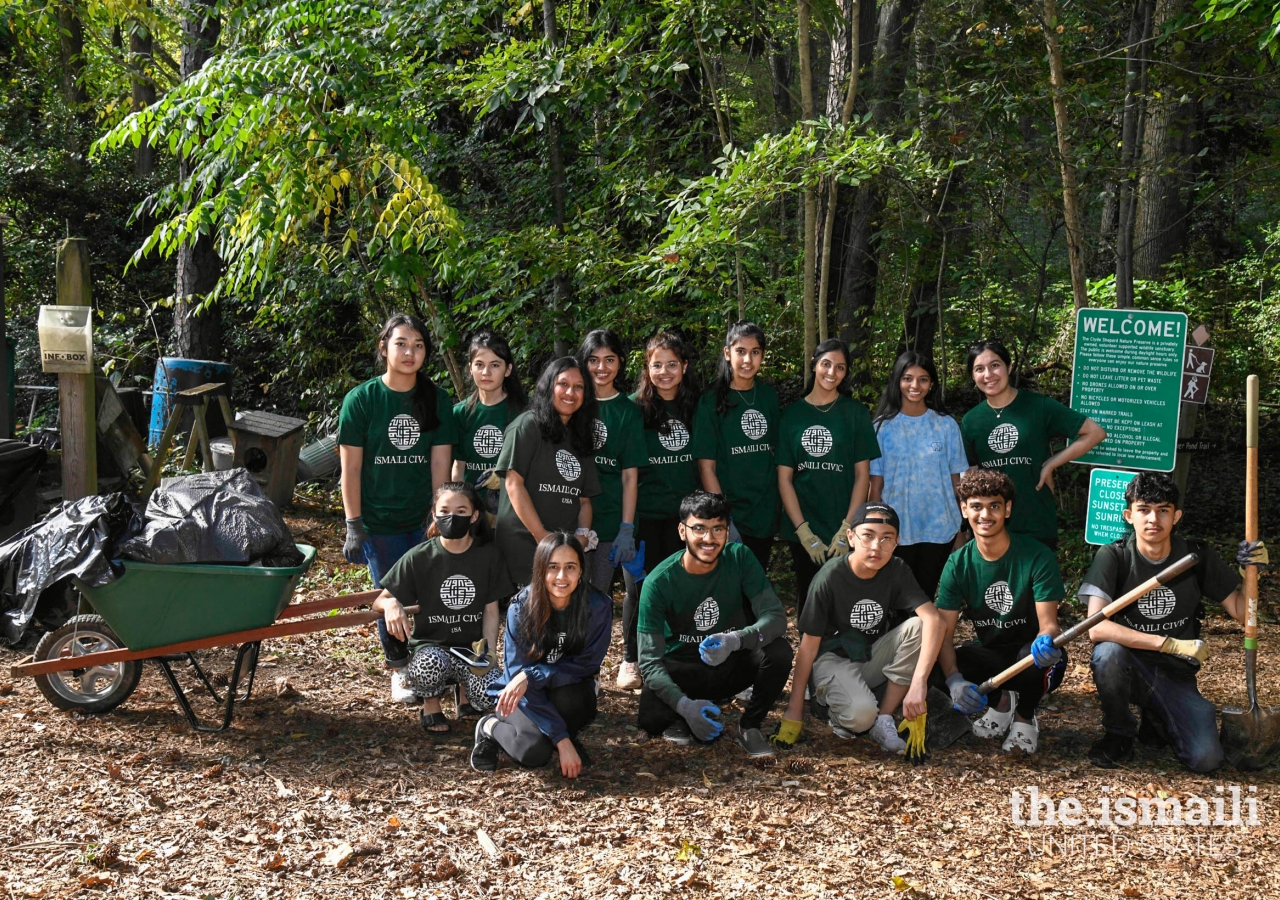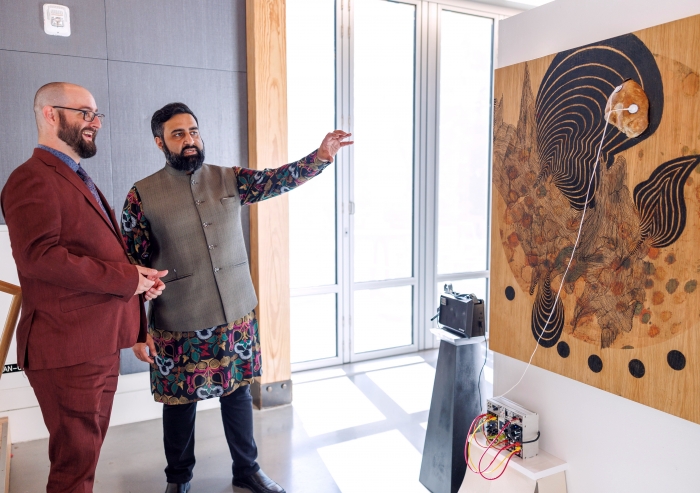Reflect on how nature makes you feel the presence of the Divine.
How has water served you in the last week?
What daily actions can we take to conserve water?
These were some of the thought-provoking prompts that Rosaleen Xiong, Program Fellow at Georgia Interfaith Power & Light (GIPL), challenged young participants with at an interfaith dialogue and river clean-up.
1982
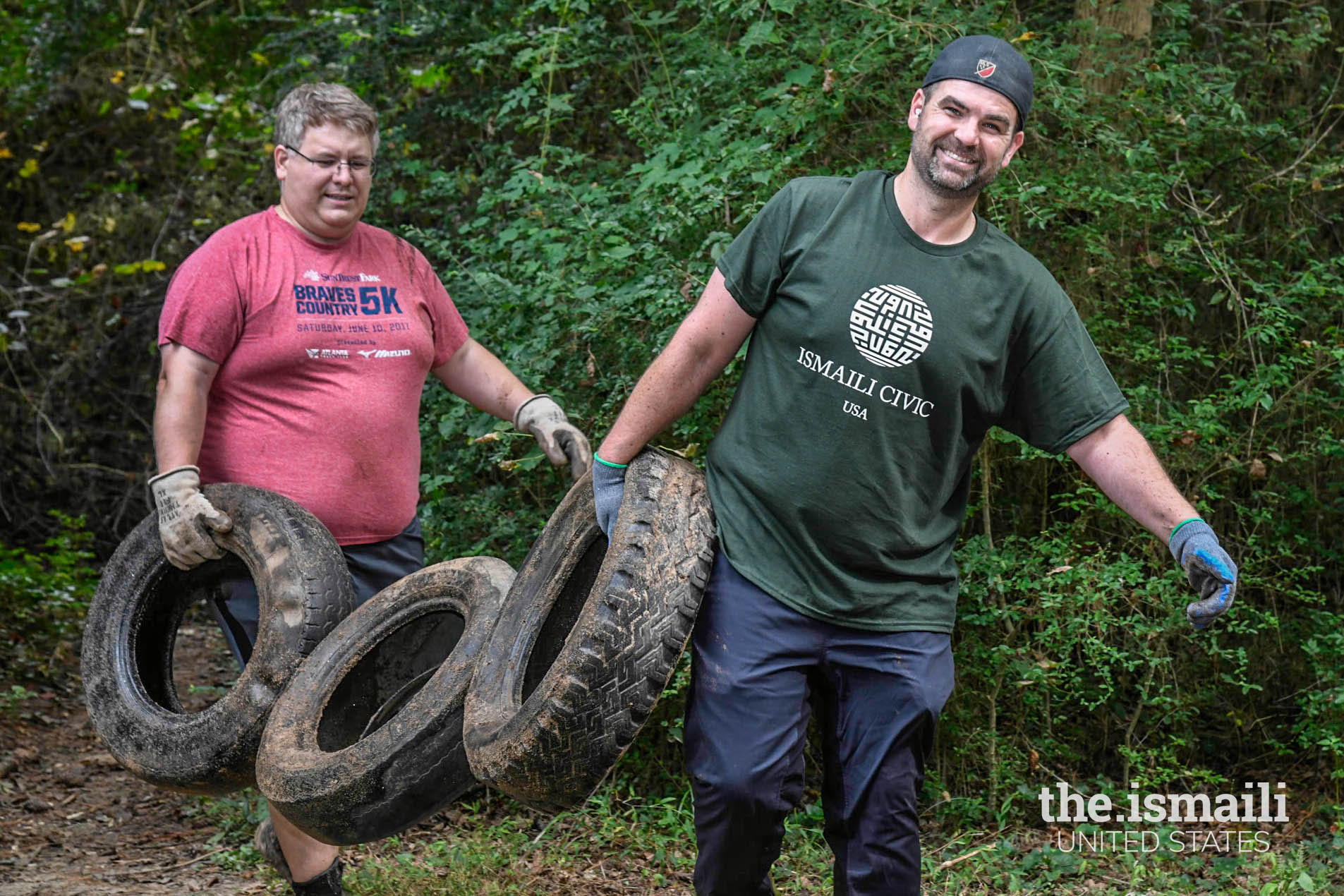
The group gathered in commemoration of World Rivers Day and the second annual Global Ismaili CIVIC Day at the Clyde Shepherd Nature Preserve in Decatur, Georgia. The event resulted from a partnership between The Episcopal Church of Epiphany, Ismaili CIVIC, GIPL, Interfaith Atlanta, and other interfaith groups. For the second year in a row, environmental stewardship was the theme for Global Ismaili CIVIC Day, highlighting this immediate and critical issue.
Dr. Chris Beck, Professor of Ecology at Emory University and President of the Clyde Shepherd Nature Preserve, educated the participants on the wetlands, forests, and wildlife sanctuaries surrounding the South Fork Peachtree Creek at the nature preserve. He explained the importance of properly disposing trash and clearing garbage from waterways because it breaks down in our streams, contaminating the water and ultimately harming wildlife and humans.
Just a couple of miles downstream on the same creek, an interfaith group of adults embarked on a stream clean-up at Decatur Water Works, an abandoned drinking water processing facility at Mason Mill Park.
Together, these two groups removed over 20 large trash bags full of plastics, glass, and other debris polluting the creek. They also dug up 10 tires and some large, rusted objects from the muddy creek banks, taking action to restore the waterway to its natural state.
In addition to the environmental benefits of this interfaith clean-up, this partnership allowed Ismaili Muslims, Episcopalian Christians, Jews, and individuals from multiple faith communities to work side-by-side, providing opportunities for dialogue and friendship.
"Our river clean-up brought together nearly 100 individuals from faith communities across metro Atlanta,”.said Hannah Shultz, Program Coordinator at GIPL, an interfaith ministry that works with individuals of faith to recognize and act upon their responsibility to environmental stewardship. She added: “This day offered an opportunity for interfaith collaboration as we worked together to clean up trash from our neighborhood creeks, which serve as a vital resource for our communities and local ecosystems”
Reverend Nicole Lambelet from the Episcopal Church of Epiphany commented:
“What is so inspiring to me about these river clean-ups is two-fold. They give us a small glimpse into what is possible when we move our bodies together and work toward our mutual well-being. On the other hand, I think they also help to expose our limitations. The road to restoration and to really shifting the culture of living differently with one another–and on the earth–is going to require a deep commitment to transformative action over the long haul. I am so glad we were able to plant seeds for that transformation together. And I'm excited to see the ways we will continue the journey by watering those seeds in the months ahead leading up to next year.”
The participants might have come to this interfaith river clean-up as strangers or maybe even acquaintances, but they left as friends committed to cleaning up our waterways and parks and motivated to minimize our destructive effects on the planet.
Responsible care for the environment and ensuring that the planet can sustainably support future generations is a key component of the Aga Khan Development Network’s ethical framework. This is evident in the network’s numerous global projects that focus on sustainability and its own target to be net carbon zero by 2030.
Mawlana Hazar Imam and his family have also underscored the importance of protecting our planet. In Ottawa in 2013, Hazar Imam said, “Our faith constantly reminds us to observe and be thankful for the beauty of the world and the universe around us, and our responsibility and obligation, as good stewards of God’s creation, to leave the world in a better condition than we found it.”
1AE
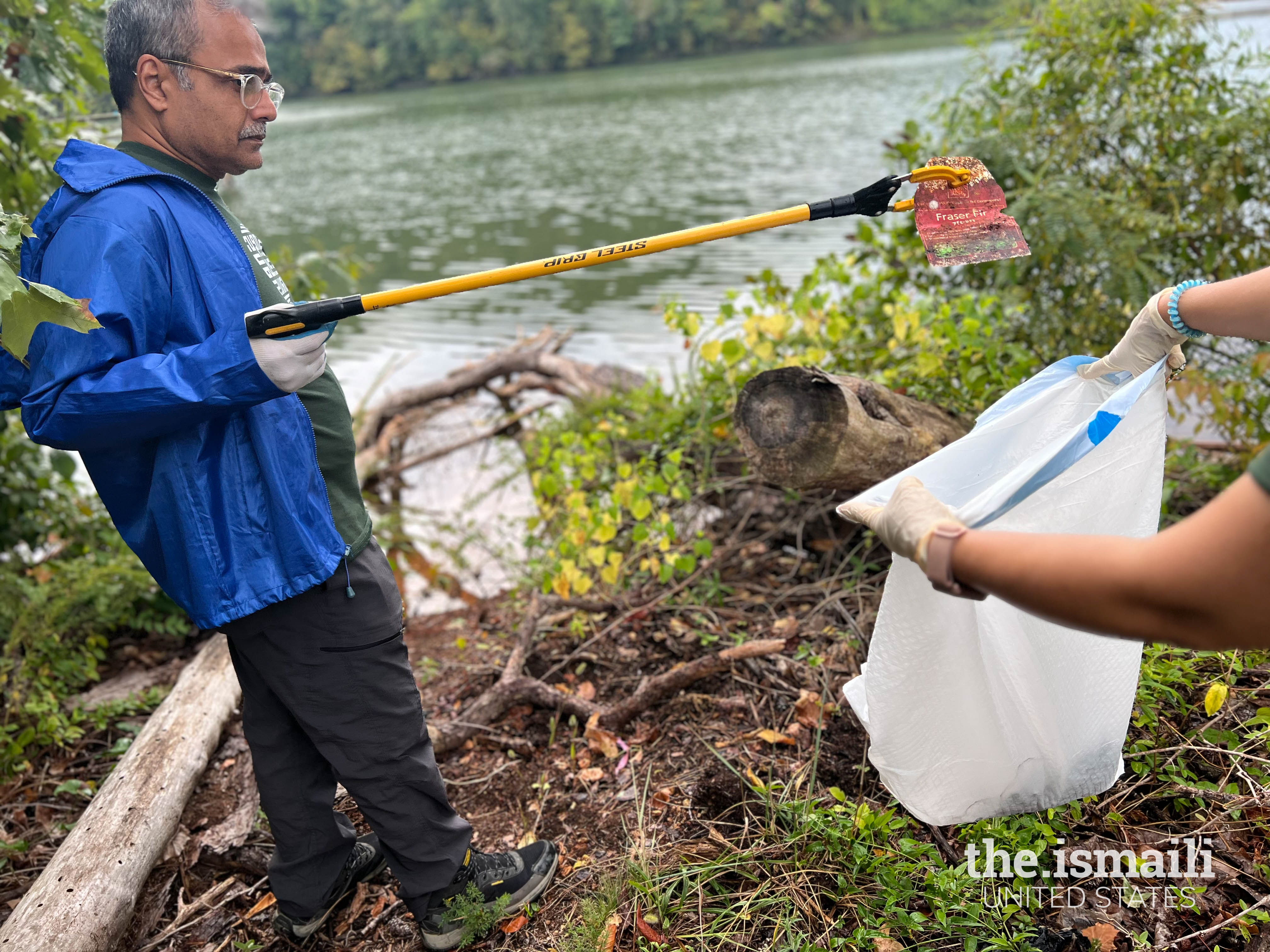
In the Southeast USA, over 300 Ismaili CIVIC volunteers gathered at 12 parks, rivers, and roadways in Alabama, the Carolinas, Tennessee, and Georgia, to clean and beautify their local environment in partnership with various nonprofits and government organizations. These regional efforts were part of the Global Ismaili CIVIC Day, through which tens of thousands of volunteers in over 30 countries participated in service opportunities to be better caretakers of the environment.
Volunteers were enthused about their involvement in the clean-up projects. Shehla Hajiyani participated in the Keep Smyrna Beautiful roadside clean-up. She remarked, “Serving alongside family and community made it a meaningful and fun event. It was great to volunteer and demonstrate stewardship to our environment. Seeing household items, wrappings, cans, etc. littered was sad, and begs the question of how we can serve as stronger advocates for the environment and communities we live in.”
At the Chief William C. Hewitt Park clean-up in Birmingham, Alabama, Rizwan Halani said, “I felt like it was something that I should do more often, I enjoyed helping clean the park. We only have one earth, so it is our duty to keep it clean.” Here Ismaili CIVIC volunteers worked with Black Warrior Riverkeeper to remove close to 200 pounds of trash from the park’s waterways and green spaces.

